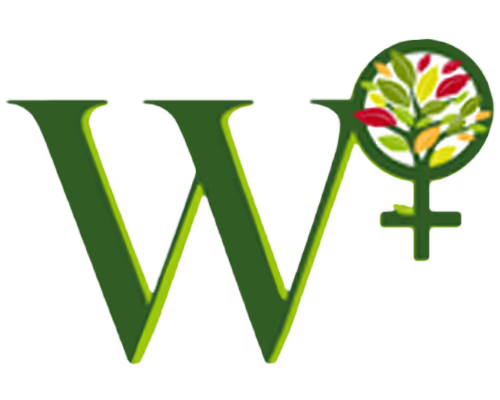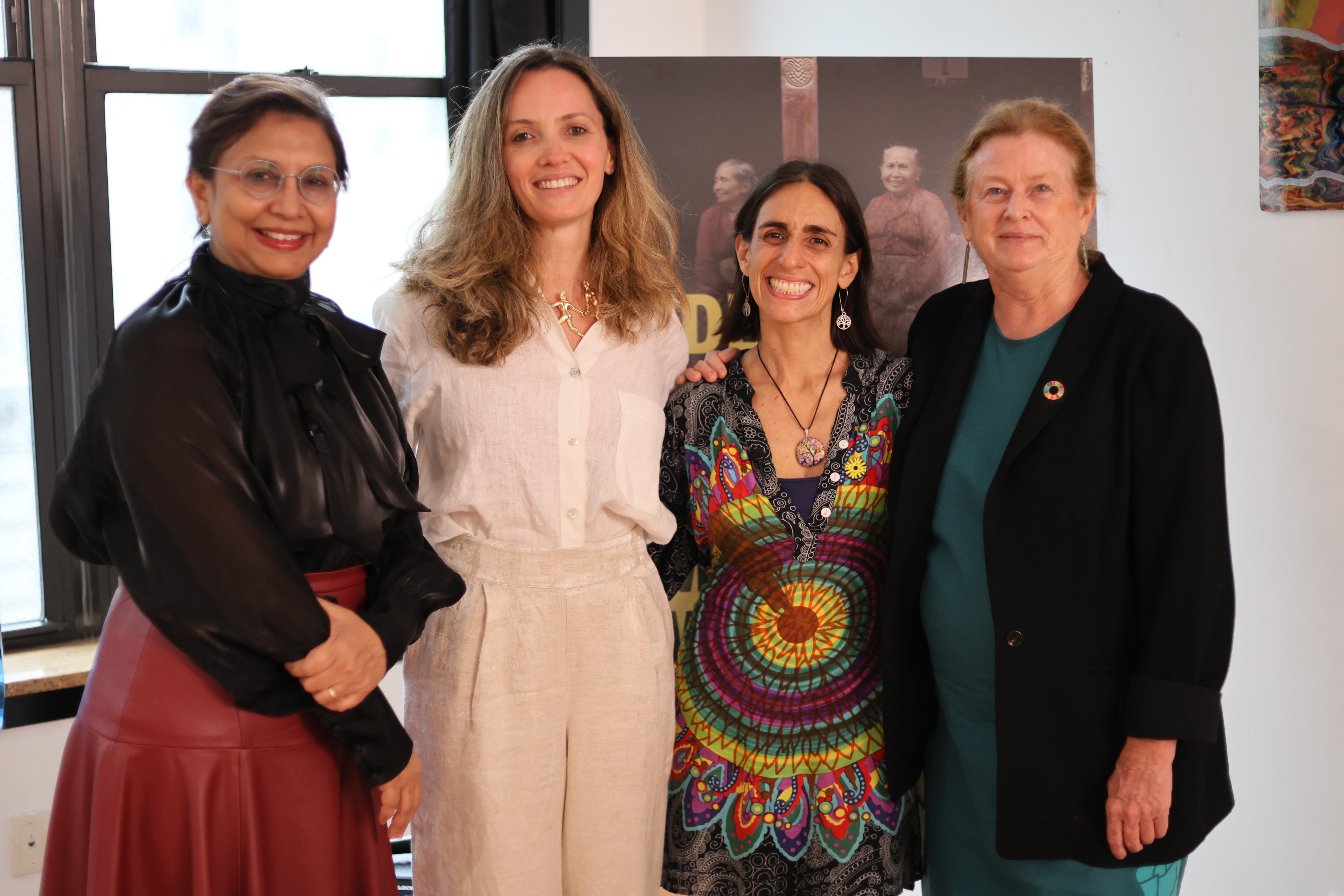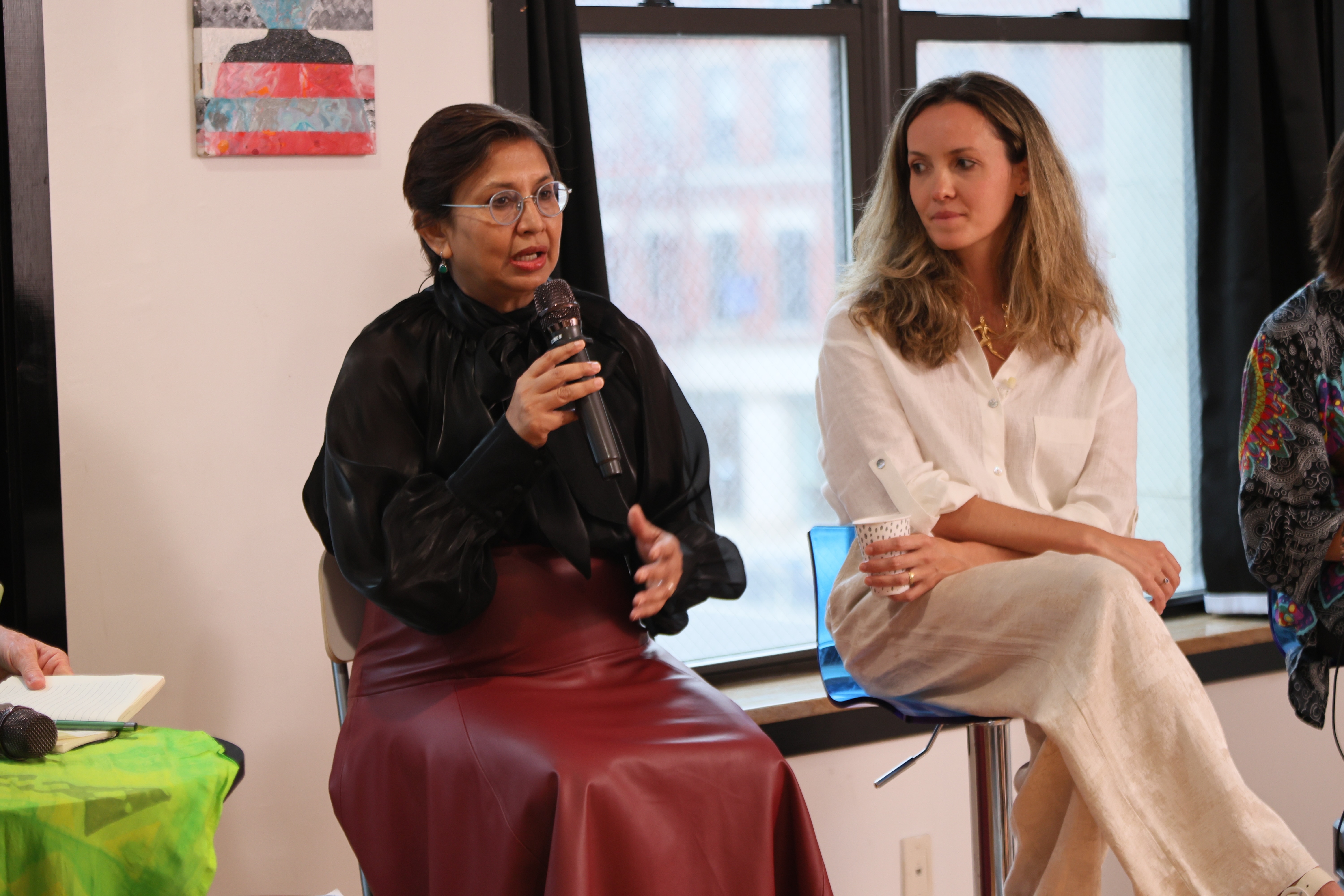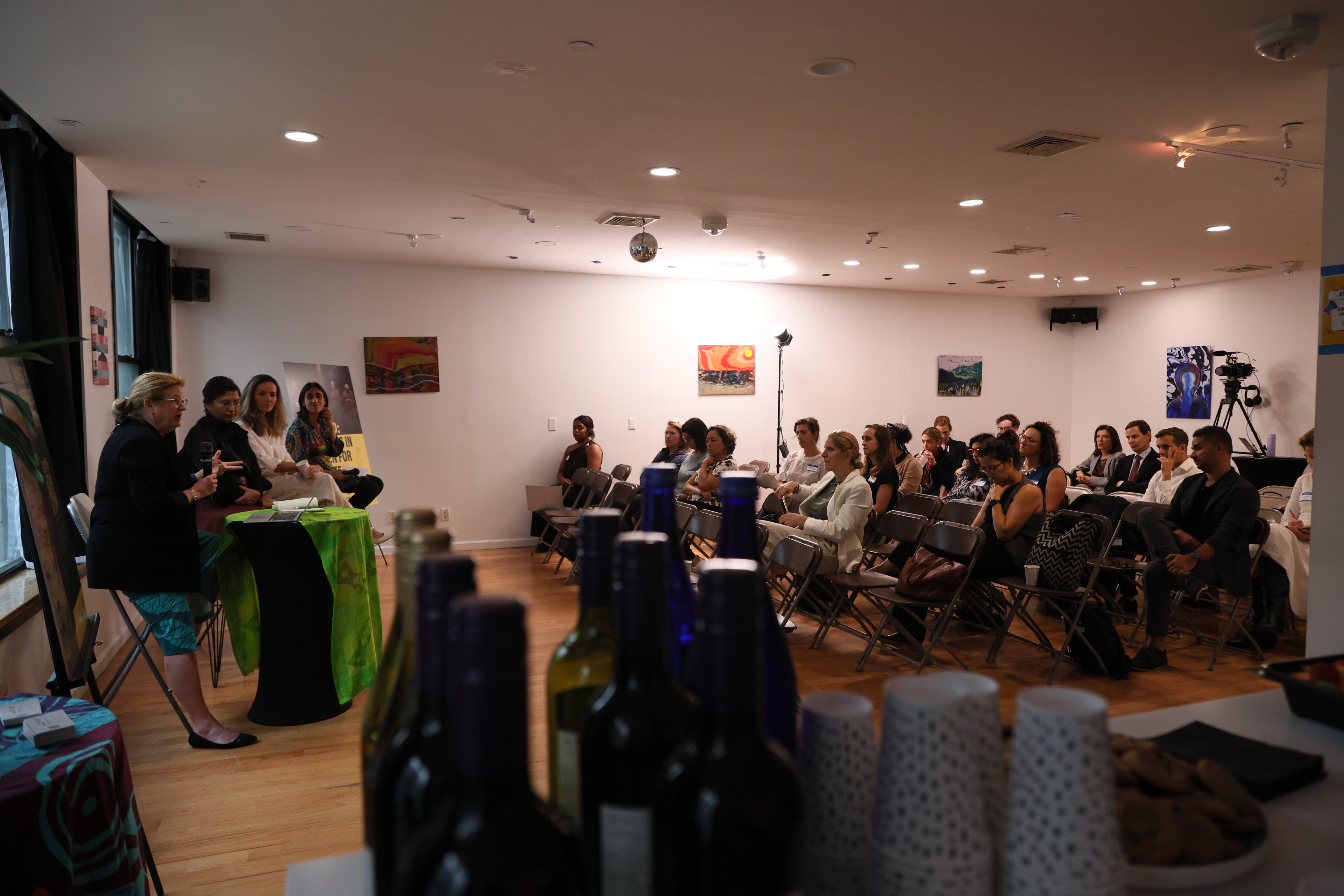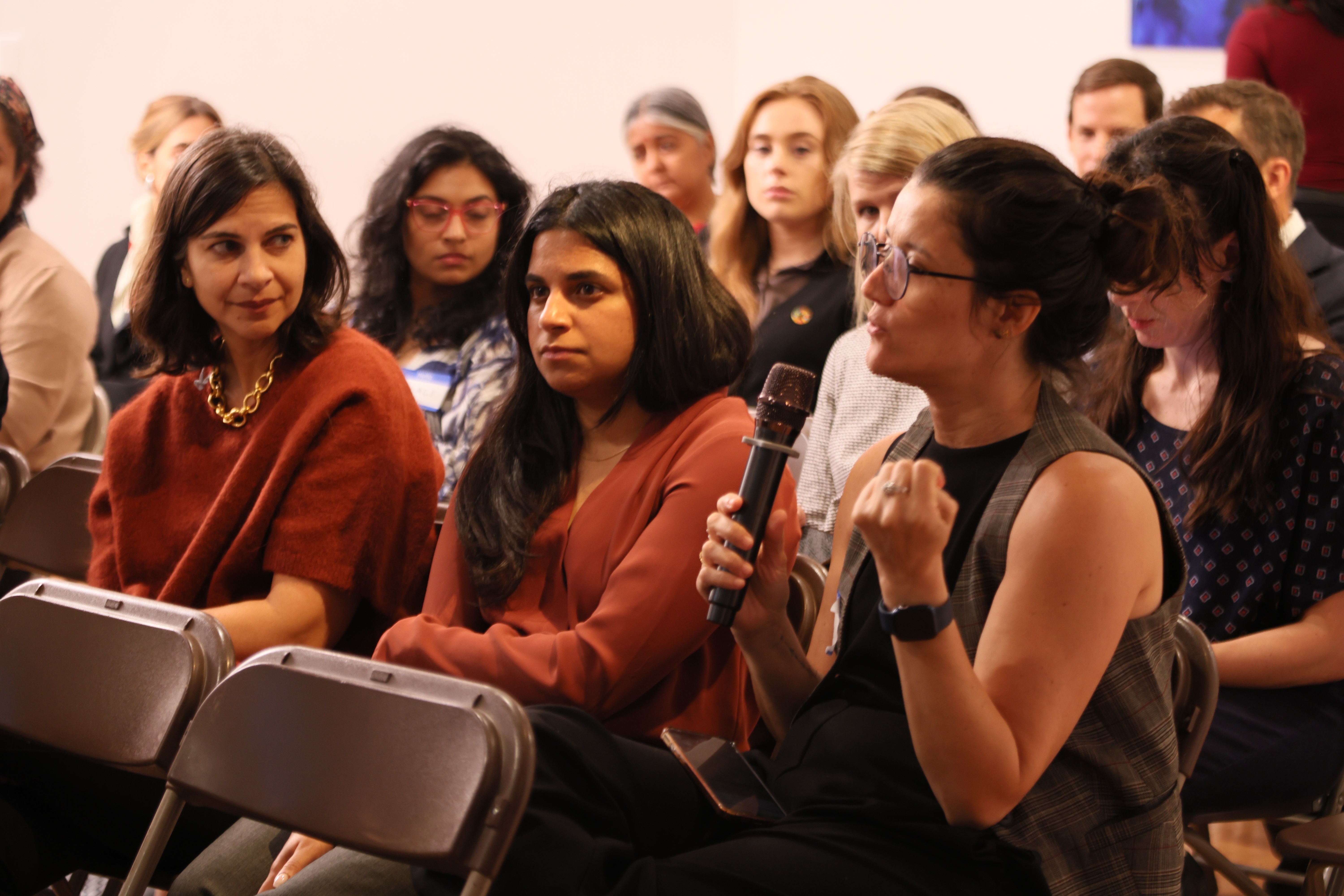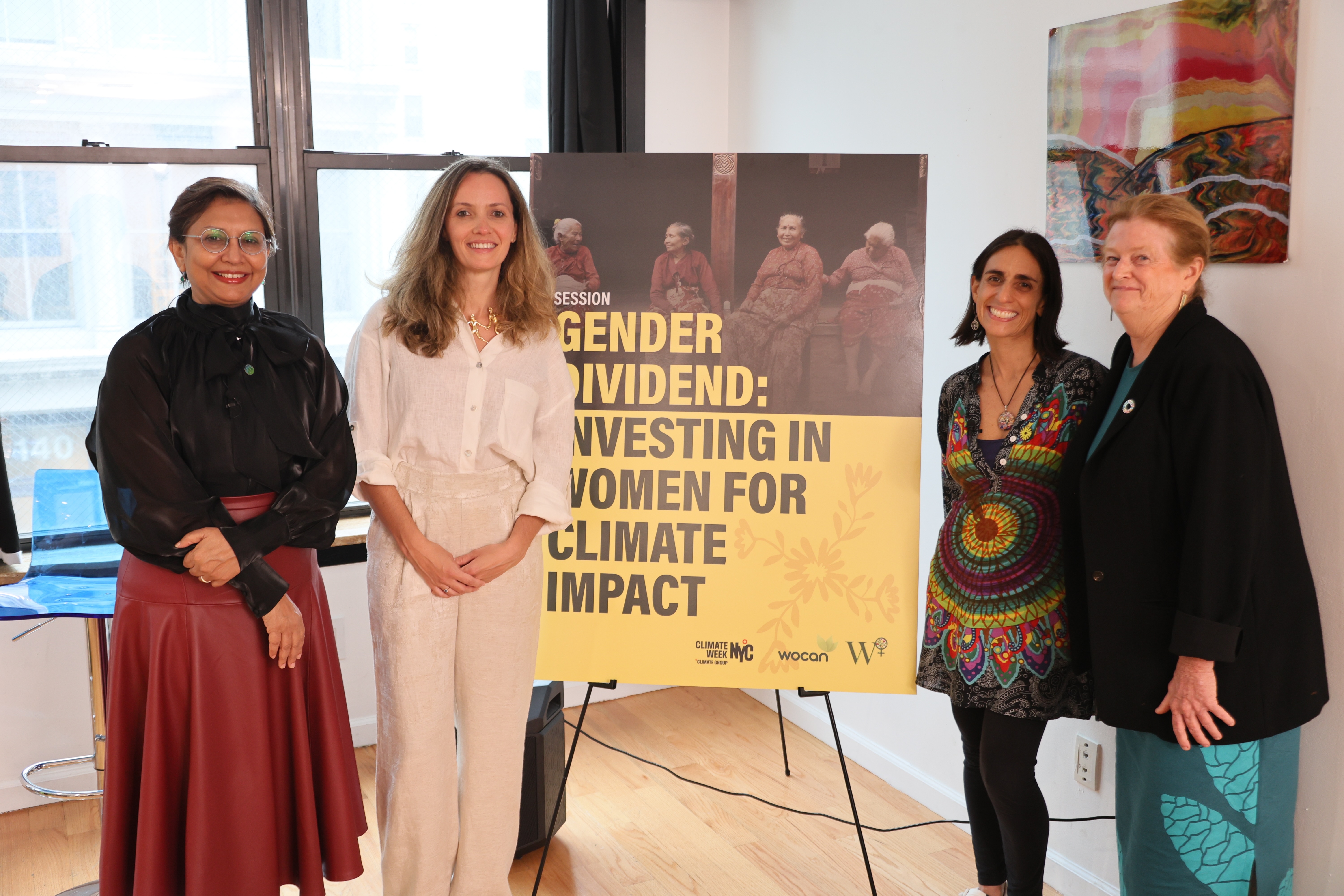The Gender Dividend - New York Climate Week 2025
This New York Climate Week panel brought together Jeannette Gurung (WOCAN), Kavita Sinha (Green Climate Fund), Ana Maria Loboguerrero (Gates Foundation), and Bruna Rezende (IRIADA, Brazil). The discussion focused on linking gender equity and climate finance through data, frameworks, and new investment models that recognize women as key drivers of climate solutions.

Executive Summary: Gender Dividend: Investing in Women for Climate Impact
This New York Climate Week panel brought togetherJeannette Gurung (WOCAN), Kavita Sinha (Green Climate Fund), Ana Maria Loboguerrero (Gates Foundation), and Bruna Rezende (IRIADA, Brazil). The discussion focused on linking gender equity and climate finance through data, frameworks, and new investment models that recognise women as key drivers of climate solutions.
From Vulnerability to Agency
Speakers emphasised the need to move away from viewing women as 'vulnerable victims' and instead recognise them as agents of change. Less than 1% of global climate finance reaches women, under scoring the urgency of developing market-based approaches to fund women-led climate action.
The W+ Standard
Developed by WOCAN, the W+ Standard measures and monetises women's empowerment outcomes across six domains: time, income/assets, health, knowledge/education, food security, and leadership. EachW+ credit represents a 10% positive change for women and can be traded like carbon credits. At least 20% of revenues go directly to women’s organisations, creating measurable social and economic impact.
Investor Perspectives – Green Climate Fund
Kavita Sinha highlighted GCF’s integrated gender policy, which mandates gender-sensitive assessments and disaggregated data in all funded projects. The GCF aims to de-risk private investment in developing countries while promoting gender equity and financial sustainability through a triple bottom line approach.
Gates Foundation’s Data-Driven Approach
Ana Maria Loboguerrero emphasised that investing in women is smart economics, not charity. The Gates Foundation uses data and frameworks like W+ to measure gender outcomes, link adaptation and mitigation, and scale projects that empower women farmers. Sustainability and long-term financial viability are key priorities.
Brazil’s Social Asset Model
Bruna Rezende presented IRIADA’s innovative fund that creates 'social assets' combining gender empowerment with nature-positive results. The 'Women of Recycling' program trains women waste workers, boosting their income by 31%, reducing 30 tons of CO₂, and improving local resource efficiency. This model demonstrates how empowering women can drive both social and environmental gains.
Audience Reflections
Participants called for frameworks, metrics, and collaborative models that crowd in private investors. They emphasised scaling gender-focused climate projects through blended finance and standardised measurement systems like W+.
Key Takeaways
• Shift from women as victims to leaders of climate action.
• Use standards like W+ to quantify and monetise empowerment.
• Mobilise private capital with data and de-risking tools.
• Strengthen women’s organisations for sustainable impact.
• Develop new asset classes linking social impact with financial returns.
Conclusion
Empowering women is both equitable and strategic. The Gender Dividend dialogue showcased how rigorous standards, impact frameworks, and market-based financing can transform climate finance into a driver of gender equality, community resilience, and sustainable development.
Sign up for Updates
Join Today.
From project milestones to new methodologies, discover how the W+ Standard is making change happen.

